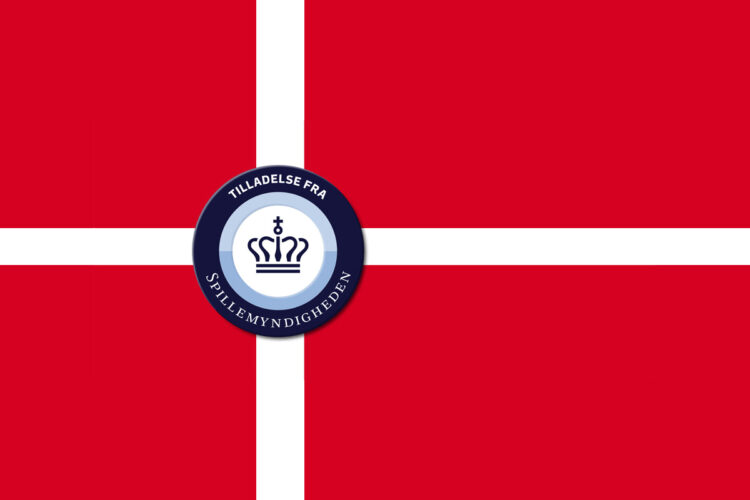European countries are often grouped under one umbrella when it comes to legislations since every European country is broadly governed by the European Union. However, when it comes to gambling, most countries have their own laws, regulations, gambling authority, and license. Each country is free to decide which forms of gambling are allowed, with some allowing all forms of gambling and others allowing only specific forms of gambling such as sports betting, poker, or casino games.
Most countries in the European Union allow betting on games of chance online, such as online slot machines. However, in most cases, operators need to be licensed by the respective gambling authority, both when offering their services to residents of the country and foreign players as well.
In this article, we’ll take a look at the different gambling laws and regulations in the United Kingdom, Denmark, Sweden, Italy, and Germany. Although laws vary quite significantly between countries, the mission of every EU country is regulating the online gambling market is to ensure players are protected from unfair or irresponsible gambling, especially minors and potentially vulnerable gamblers.
1. United Kingdom

Online gambling in the UK is legal under the UK gambling license but it’s heavily regulated by the UK Gambling Commission which is responsible for all the legal framework surrounding gambling in the country. The UKGC is known as one of the strictest regulatory bodies not only in Europe but across the globe as well. Beside licensing online casinos based in the UK, they also regulate and monitor all their licensees and provide information and help for gamblers in the UK.
To obtain a UKGC license, online casinos must meet a long list of requirements and standards which are put in place to protect players from potentially harmful gambling activities and to ensure that gamblers are safe from unfair proceedings or irresponsible gambling. For example, operators are limited and even restricted in what services they can provide their players and the way they market their services too. Misleading marketing or offers which encourage players to gamble excessively are strictly prohibited in order to protect players from spending more time and money than they can afford to on gambling.
Any online casino operator which is licensed by the UKGC but doesn’t comply with all of the regulations and requirements is subject to heavy fines and many times the license may also be revoked, which simply goes to show that this regulatory body takes responsible gambling very seriously. For players, a UKGC license is always a sure sign of a reputable online casino which is safe and trustworthy to play at.
2. Sweden

When it comes to gambling regulations, Sweden is one of the few countries that is just as strict, if not more, than the UK. Gambling and sports betting in Sweden are all regulated by the Swedish gambling authority Spelinspektionen. For many years, the government had a monopoly over online gambling in the country and only the state-owned Svenska Spel was permitted to offer any online gambling services to Swedish residents but with the new regulations, Sweden opened up the market to foreign operators wanting to offer their services in Sweden.
In order to do so, online casinos or betting sites must be licensed by the Swedish Gambling Authority which has some of the strictest regulations and standards that are designed to safeguard players’ rights. Click here to learn more about the Swedish gambling laws and regulations and find licensed Swedish online casinos.
3. Denmark

Denmark also has a well-regulated gambling market which is controlled by the Danish Gambling Authority, Spillemyndigheden. Online gambling and land-based gambling are both permitted in Dernmark as long as operators are in possession of a Danish gambling license which is awarded by the Spillemyndigheden. In comparison to gambling regulations in other European countries, Denmark is not as strictly regulated, although there are still several obligations and requirements that operators must fulfill in order to obtain and keep a gambling license. There are also heavy fines and potential imprisonment for any operator offering gambling services illegal to Danish citizens. Players aren’t fined for playing at an unlicensed online casino, but they won’t have any protection from fraud and unfairly withheld funds.
4. Italy

The gambling regulations in Italy are fairly lenient and not so strict when compared to the regulations in countries like the UK and Sweden which have some of the most extensive gambling laws. Both offline and online gambling in Italy are controlled by The Customs and Monopolies Agency which has been established since 1960. In 2006, Italy legalized sports betting services in the country by other forms of online gambling were still prohibited. Five years later, several changes to the gambling legislations were made and online casino games became legal as well as long as operators are in possession of an Italian gambling license.
In recent years, the Italian gambling authority has also been clamping down heavily on gambling advertising and it seems that all forms of promotional communication and advertising related to gambling will be banned in the country. Since 2007, the ADM has also been taking several measures to prohibit illegal gambling by banning and fining operators that aren’t in possession of the required license and authorization to offer gambling services.
5. Germany

Germany’s gambling laws and regulations have undergone significant changes since 2024 when all 16 states came to a mutual agreement to regulate online betting sites and casinos to control the market more effectively and promote safer gambling habits. Prior to the latest changes to the gambling regulations, online casinos in the country could be licensed by other gambling bodies such as the Malta Gaming Authority, but these are no longer valid. Operators must now apply for a license from the federal state of Saxony-Anhalt. This means that gamblers in Germany are now prohibited from online casinos and betting sites that aren’t licensed by the German gambling authority.
 Hi Boox Popular Magazine 2024
Hi Boox Popular Magazine 2024



